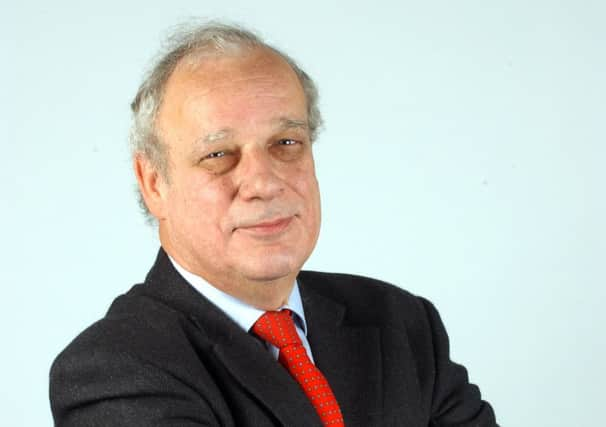Comment: Dividends are making the money go round


In the energy pricing controversy, the dividend payments of the big utility companies are often singled out for criticism. But who mostly benefits from dividend payments?
This year, UK companies will pay shareholders an estimated £101 billion. This mooted 27 per cent jump on the previous year largely reflects a record £17bn pay-out from mobile phone giant Vodafone. This reflects the $130bn sale of its stake in US telecoms giant Verizon. The deal – currently pending approval – is due to be paid on March 5.
Advertisement
Hide AdAdvertisement
Hide AdAccording to the latest UK Dividend Monitor from Capita Asset Services, the underlying aggregate dividend total for 2013, after stripping out special one-off capital repayments, was £79.8bn in 2013, down 1 per cent on the previous year.
Investors in the blue-chip FTSE 100 index would have been content last year however, as dividends here bounced 7 per cent, against a rise of just 2.9 per cent for the FTSE 250.
The charge often made is that companies could surely find better things to do with their earnings than making payments to shareholders. But investors provide the company with money to enable it to pursue its business – equity capital can prove an attractive and efficient means to raise capital. Loan finance can be subject to changes in rates outwith the company’s control. And, as recent years have shown, bank loans are not always available when companies need them.
Young companies often need to plough all available capital into growing the business and do not pay out dividends. The reward is (hopefully) an increase in the value of investors’ shares as the business becomes profitable. Mature companies generally need to provide an income stream for investors to compensate for the risk that they take in buying the shares.
And it would be wrong to image that shareholders comprise a fat few thousand high-net-worth individuals. The biggest investors in our large companies today are central and local government pension schemes, private sector pension providers, insurance companies and unit and investment trusts investing on behalf of millions of small private investors.
A typical pension fund will hold substantial lines of shares in FTSE 100 giants such as BP, Royal Dutch Shell, Vodafone, HSBC and GlaxoSmithKline. Together they paid out more than £28bn in dividends last year – more than a third of the UK’s total.
These payments enable institutional investors to provide start-up equity capital for new businesses through venture funding, and on the other hand are a vital lifeline for many millions of pensioners, as well as those saving through an ISA.
Figures from Hargreaves Lansdown show that, over five years, investment in the FTSE 100 would have given a capital gain of 52 per cent. With dividends re-invested, the overall growth would have been 83 per cent.
Advertisement
Hide AdAdvertisement
Hide AdBut there is, of course, risk. Many investors held shares in HBOS, Lloyds Bank and Royal Bank of Scotland for their income attractions, but these pay-outs were the first victims of the financial crisis. And while Lloyds could resume payments over the next 12 months, it may be several years yet before RBS is in a similar position.
It is, as always, a question of risk and reward. We may fume at the prospect of SSE raising its dividend this year – but that dividend can work to swell the wealth of millions of households.